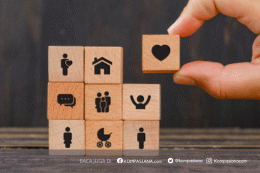The Science Behind Falling in Love and Heartbreak: Their Effects on the Body
Love is often described as a rollercoaster of emotions, but did you know it also triggers physical changes in your body? Whether you're falling head over heels or dealing with the pain of heartbreak, both experiences have profound impacts on your well-being. Understanding these changes can help you navigate the highs and lows of relationships with greater insight.
1. The Chemistry of Falling in Love
When you fall in love, your brain releases a flood of chemicals, including dopamine, oxytocin, and serotonin. These "feel-good" hormones create the euphoria often associated with new love. Dopamine, in particular, gives you that sense of pleasure and motivation, making you want to spend more time with the person you're falling for.
2. The Physical Signs of Love
Falling in love doesn't just affect your brain; it impacts your body too. You might notice an increase in heart rate, sweaty palms, and even butterflies in your stomach. These are all signs of increased adrenaline, which is released when you're excited or nervous about a new romantic connection.
3. The Role of Oxytocin in Bonding
Oxytocin, often referred to as the "love hormone," plays a critical role in forming bonds between romantic partners. It creates feelings of closeness and attachment, which help deepen emotional connections. Over time, this hormone helps sustain relationships by promoting trust and reducing stress.
4. Heartbreak and the Body's Stress Response
On the flip side, heartbreak can have an equally strong impact on your body. The emotional pain of losing someone can trigger a stress response, leading to the release of cortisol, the body's primary stress hormone. High levels of cortisol can result in symptoms such as insomnia, fatigue, and even physical aches and pains.
5. The Impact on Your Heart
It's not just a metaphor---heartbreak can truly hurt your heart. A condition known as Takotsubo cardiomyopathy, or "broken heart syndrome," occurs when intense emotional stress weakens the heart muscle. While rare, this condition demonstrates the real physiological effects of emotional trauma.
6. How the Brain Processes Heartbreak
The brain experiences heartbreak in a similar way to physical pain. Studies have shown that the same regions of the brain that process physical pain are activated when you're emotionally hurt. This explains why heartbreak can feel so excruciating---it's as if your brain is telling you that something is physically wrong.
7. The Importance of Self-Care
Dealing with heartbreak requires time and care. Engaging in self-care practices such as exercise, meditation, and spending time with loved ones can help reduce stress and promote healing. These activities increase levels of serotonin, the hormone associated with happiness and emotional balance.
8. The Long-Term Effects of Love and Heartbreak
While the immediate effects of love and heartbreak are powerful, they can also have long-term impacts on your health. Chronic stress from heartbreak can lead to issues such as high blood pressure and a weakened immune system, while a stable, loving relationship can improve both mental and physical health over time.
9. Love and the Immune System
Being in love has been shown to boost the immune system. The positive emotions associated with love increase the production of antibodies, helping your body fight off illness more effectively. On the other hand, the stress of heartbreak can suppress the immune system, making you more vulnerable to illness.
10. Healing from Heartbreak
While heartbreak can feel overwhelming, it's important to remember that healing is possible. Time, support from friends and family, and engaging in activities that bring you joy can all help in recovering from emotional pain. Over time, your body will adjust, and the emotional wounds will heal.
Whether you're falling in love or recovering from heartbreak, the physical effects on your body are undeniable. Understanding the science behind these feelings can offer comfort and clarity during emotional highs and lows. Love may be complex, but knowing how it affects your body helps you navigate relationships with a greater sense of awareness.
Baca konten-konten menarik Kompasiana langsung dari smartphone kamu. Follow channel WhatsApp Kompasiana sekarang di sini: https://whatsapp.com/channel/0029VaYjYaL4Spk7WflFYJ2H








